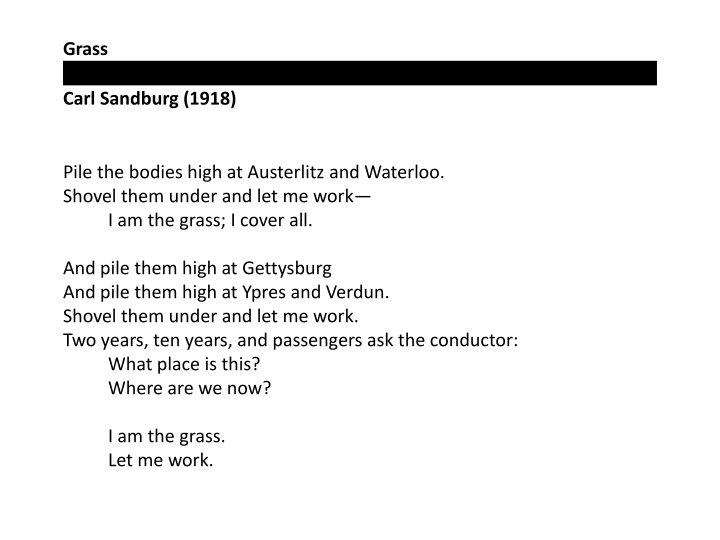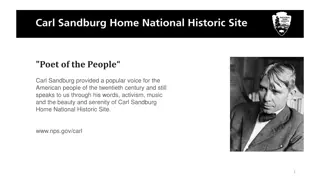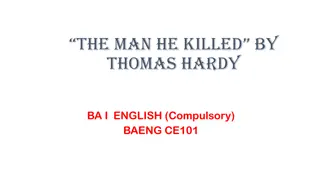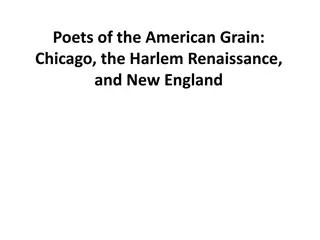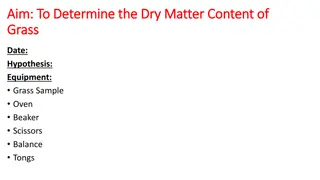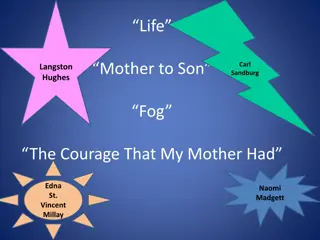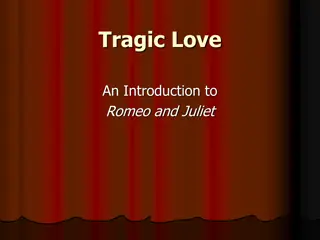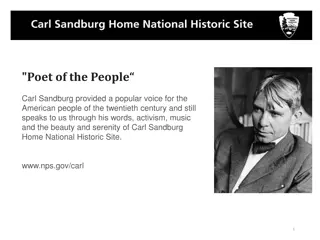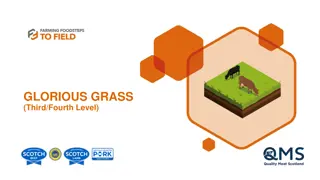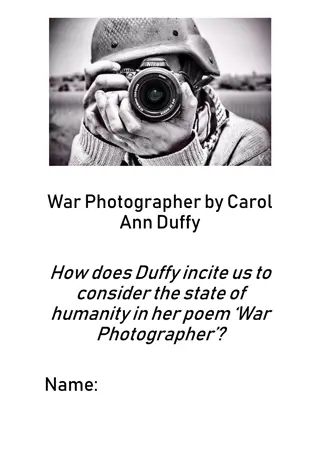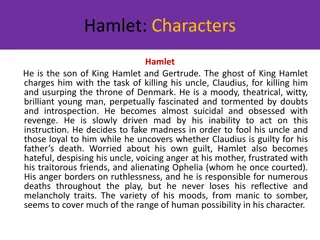Tragic Tale of War and Grass in Carl Sandburg's Poem
Carl Sandburg's poem "Grass" reflects on the gruesome aftermath of wars like Austerlitz, Waterloo, Gettysburg, Ypres, and Verdun, with the grass personified as a silent witness covering the piled bodies. The poem hauntingly portrays the destruction and loss during the war, emphasizing the cyclical nature of conflict and the resilience of nature. The statistics of battle deaths from nations involved in World War I serve as a stark reminder of the human cost of war.
Download Presentation

Please find below an Image/Link to download the presentation.
The content on the website is provided AS IS for your information and personal use only. It may not be sold, licensed, or shared on other websites without obtaining consent from the author.If you encounter any issues during the download, it is possible that the publisher has removed the file from their server.
You are allowed to download the files provided on this website for personal or commercial use, subject to the condition that they are used lawfully. All files are the property of their respective owners.
The content on the website is provided AS IS for your information and personal use only. It may not be sold, licensed, or shared on other websites without obtaining consent from the author.
E N D
Presentation Transcript
Grass Carl Sandburg (1918) Pile the bodies high at Austerlitz and Waterloo. Shovel them under and let me work I am the grass; I cover all. And pile them high at Gettysburg And pile them high at Ypres and Verdun. Shovel them under and let me work. Two years, ten years, and passengers ask the conductor: What place is this? Where are we now? I am the grass. Let me work.
Video of the Meuse-Argonne moving images
Nations engaged in the war 1914-1918 Battle deaths Russia 1,700,000 Germany 1,600,000 France 1,385,800 Great Britain 900,000 Austria 900,000 Italy 364,000 Turkey 250,000 Serbia and Montenegro 125,000 Belgium 102,000 Bulgaria 100,000 Romania 100,000 United States 50,300 Greece 7,000 Portugal 2,000 Total 7,485,600
